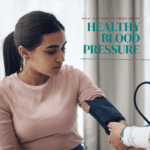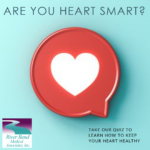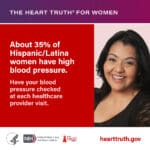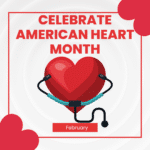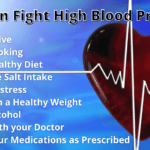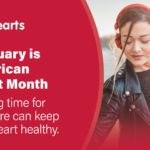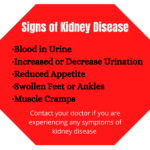In addition to providing preventive care such as wellness exams and annual vaccinations, your family doctor can be your first line of defense against serious illnesses like heart disease. At River Bend Medical Associates, we know that heart health is about more than just tests and medications, it is about providing compassionate care for you and your loved ones so you can live your best life.
Heart disease, or cardiovascular disease, can appear in many forms. It can drain you of energy, make you feel ill, cause you pain, or silently cause damage to other parts of your body.
Ask your primary care physician for a routine heart check. If you need to see a heart specialist (cardiologist) your River Bend Medical Associates family doctor can give you a referral.
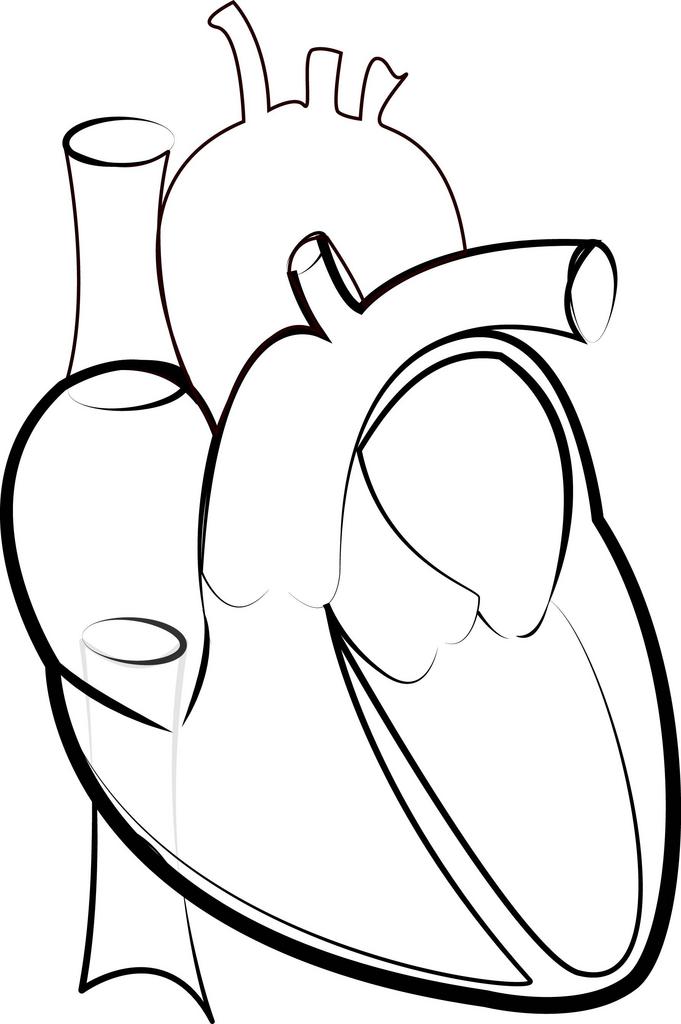
What is Heart Disease?
Heart disease is a term used to describe several different heart-related conditions. These conditions affect your heart, blood vessels, and arteries.
Types of heart disease:
- CAD – Coronary Artery Disease
- PAD – Peripheral Artery Disease
- Cardiac Valve Disease
- Cardiomyopathy
- Heart Failure
- Vascular Disease
- Stroke
- High Blood Pressure
The most common type of heart disease in the U.S. is CAD or coronary artery disease. This type of heart disease is caused by plaque buildup in the arteries and blood vessels around the heart. Plaque is a substance composed of cholesterol, fatty materials, and minerals. When these plaques build up, coronary arteries struggle to send enough blood, oxygen, and important nutrients to the heart muscle.
PAD, or peripheral artery disease is similar to CAD. In that, it is also caused by a buildup of plaque. Both PAD and CAD are caused by atherosclerosis, which is the narrowing of your arteries due to plaque buildup. With PAD plaque builds up in the arteries leading to your extremities. The most common type is lower extremity Pad, in which blood flow is reduced to the legs and feet.
Your heart has four valves that keep blood flowing in the right direction. When you have cardiac valve disease, one or more of the valves in your heart don’t work properly. This can disrupt the flow of blood to your heart.
Cardiomyopathy is a disease that affects the heart muscle. In many cases, it causes the heart muscle to become thick, enlarged, or rigid and makes it harder for your heart to pump blood to the rest of your body.
The term heart failure means that the heart is too weak to pump as well as it should. Your body depends on your heart to pump oxygen and nutrient-rich blood to its cells. With heart failure, your heart is still working, just not at a normal level which can lead to fatigue and shortness of breath.
Vascular disease includes any condition that affects your blood circulation or vascular system. This includes diseases of your arteries, veins, and lymph vessels, or blood disorders that affect circulation.
A stroke occurs when your brain can’t get enough blood flow. Coronary artery disease increases your chances of having a stroke because plaque builds up in the arteries and blocks the flow of oxygen-rich blood to the brain.
Hypertension or, high blood pressure, can increase your risk of heart disease, stroke, heart attack, and other serious health problems. Untreated high blood pressure can damage your arteries by making them harder, which reduces the flow of blood and oxygen to your heart.
Symptoms of Heart Disease
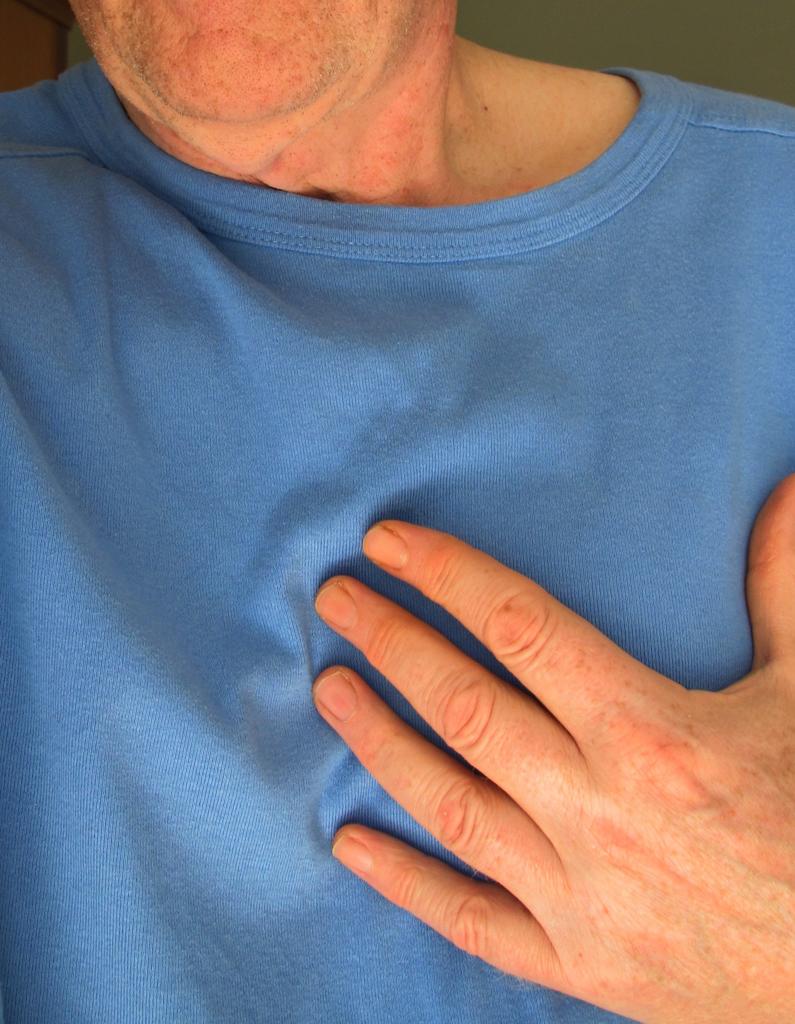
Symptoms of heart disease vary based on the type of heart disease. Common symptoms of heart disease include:
- Chest pain or discomfort
- Upper back or neck pain
- Indigestion
- Chest palpitations
- Heartburn
- Nausea or vomiting
- Extreme fatigue
- Upper body discomfort
- Swelling of legs, feet, abdomen, or neck veins
- Dizziness
- Shortness of breath
If you are experiencing a life-threatening emergency such as chest pain, trouble breathing, or stroke symptoms, dial 911 or go to the nearest emergency room.
What Should I Do if I Think I Have a Heart Condition?
If you’re concerned about your heart health, talk to your doctor. At River Bend Medical Associates, we can determine your risk of heart disease through a review of your medical history, a routine exam, and testing and can recommend lifestyle changes, prescribe medications, and refer you to a specialist if needed.
Risk Factors for Heart Disease
Several medical conditions and lifestyle choices can put people at a higher risk for heart disease.
- High blood pressure
- High cholesterol
- Smoking
- Diabetes
- Physical inactivity
- Overweight
- Excessive alcohol use
- Unhealthy diet
At River Bend Medical Associates, we are committed to educating our patients about heart health and heart disease prevention. If we determine that you have a moderate to high risk for heart disease, you can rely on us to help you create achievable goals that will decrease your likelihood of developing it
Your doctor or specialist may recommend tests to further screen for heart disease. In addition to a physical exam, tests used to diagnose heart disease include:
- Blood tests
- Heart imaging (like a chest X-ray or MRI)
- Electrocardiograms
- Stress tests
If you have been diagnosed with heart disease, our doctors will work with you to help you feel better, understand your heart condition, and achieve the best possible health for you and your heart.
Treatment for Heart Disease
Treatment for heart disease depends on the cause and type of heart damage. For instance, coronary artery disease can often be managed effectively with a combination of lifestyle changes, medication, and in some cases surgery.
Healthy lifestyle habits such as eating a low cholesterol, low salt diet, getting regular exercise, sleeping enough, and not smoking are an important part of treatment for heart disease.
Medications are available to treat heart disease if lifestyle changes alone don’t work, or if further intervention is needed to control symptoms or to prevent complications.
In some cases, patients with heart disease may require a procedure or surgery. The type of surgery or procedure will depend on the form of heart disease and the amount of damage the heart has sustained.
More on Heart Health
- A Healthy Blood Pressure: What You Need to Know
- Are You Heart Smart?
- Bringing Better Heart Health to the Hispanic/Latino Community
- Celebrate a Healthy Heart! February is American Heart Month
- Fight the “Silent Killer”
- Healthy Eating for a Happy Heart
- Heart Attack Symptoms in Women and Men
- Heart Disease in Women
- Heart Health and the African American Community
- How does Heart Disease Affect Women?
- Make Heart Health Part of Your Self-Care Routine
- March is National Kidney Month
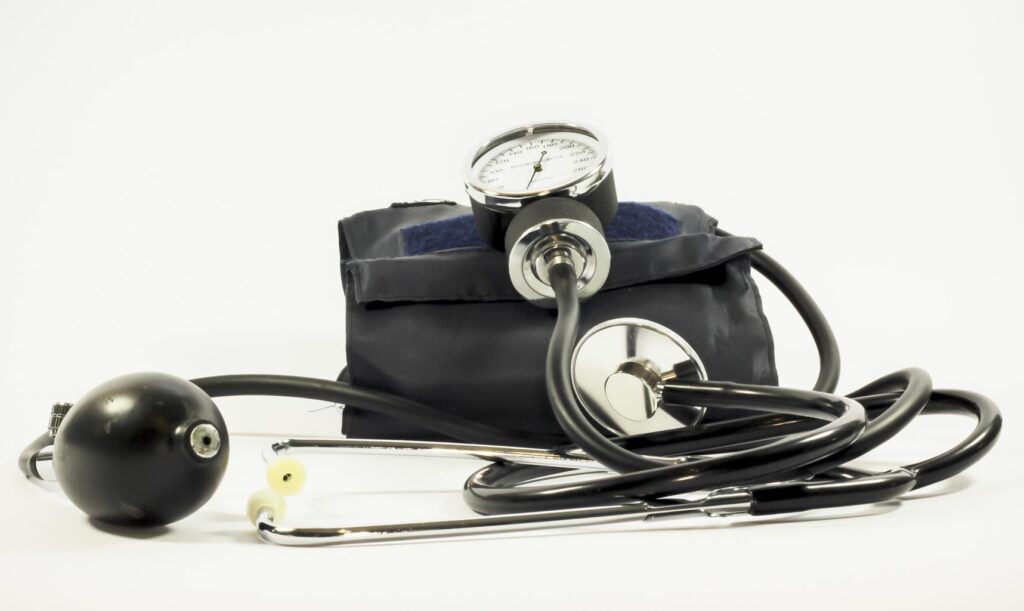
How Do I Manage My Heart Health?
Take the first step towards heart health. Make a doctor’s appointment for your annual check-up. Not only does your family doctor monitor your heart health with tests, because they know your personal history, but they can also answer any questions you have about your risk factors and what you can do to reduce your chance of developing heart disease.
- Leading a heart-healthy lifestyle is the best way to reduce your risk of heart disease or heart attack.
- Regular exercise – 30 minutes of physical activity a day can help strengthen your heart and improve circulation.
- Don’t smoke, use drugs, or drink alcohol in excess.
- Maintain a healthy weight
- Reduce stress
- Eat a heart-healthy diet.
Heart disease is a term that refers to multiple cardiovascular conditions that affect your heart, blood vessels, and arteries. While some types of cardiovascular conditions cause symptoms like chest pain or shortness of breath, others, like hypertension, can be symptomless. The best way to learn more about your heart health is to talk to your doctor.
The term heart disease may seem frightening, but it doesn’t have to be. Heart disease doesn’t have to diminish your lifespan, or quality of life as long as you’re getting proper care. At River Bend Medical Associates, our healthcare team includes skilled doctors trained to manage your heart health and dedicated to giving you the best possible care. Make an appointment for your annual exam today.



